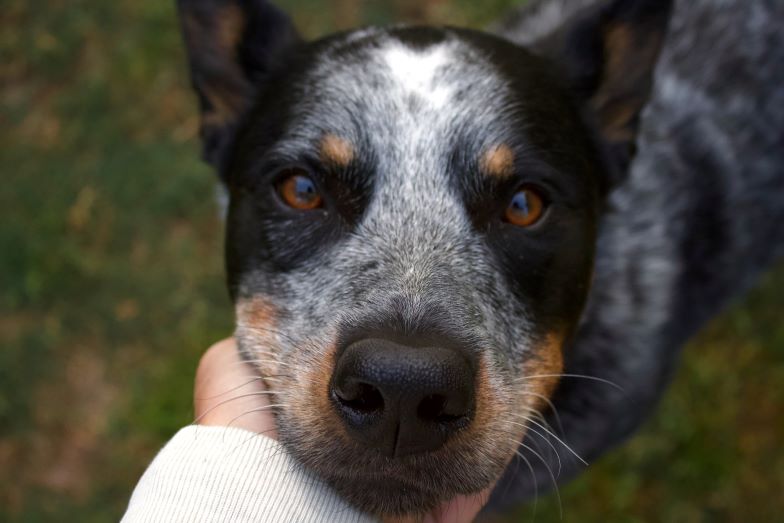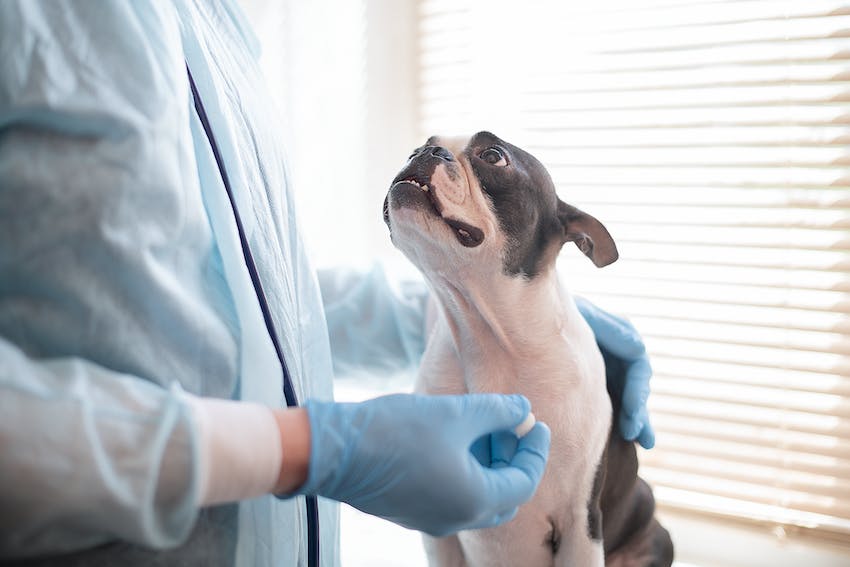Ready to help treat your pet to a healthy life?
A Guide to Alternative Medicine for Dogs & Cats
By : Trupanion Staff | Published Oct 5, 2023

Holistic medicine and natural remedies have seen a resurgence in popularity in the 21st Century. While the focus is usually on human medicine, many pet owners have also turned to alternative treatment options for a variety of pet ailments. But are these treatments safe or even effective for dogs and cats?
Before going ahead with any treatment not prescribed by a qualified veterinarian, all pet owners should seek professional opinion. In the meantime, taking the time to learn more about alternative medicine for animals will help you make better informed decisions for your pet’s health and safety.
The differences between alternative, holistic, and natural medicine for pets
The terms “alternative medicine,” “holistic medicine,” and “natural medicine” for pets are often used interchangeably, along with an abundance of other terms like homeopathy, complementary care, and integrative health. But while anything outside of normally prescribed treatments may technically be “alternative,” there are certain distinctions pet owners should be aware of.
In fact, understanding the differences between terms is key to knowing which ones may be effective, and which ones may come with higher levels of risk.
Alternative medicine
Anything that is considered a non-mainstream approach and is used in place of conventional medicine is “alternative medicine.” As explained by researcher Ilanna S. Mandel in Inquiries Journal, this is what makes alternative medicine distinctly different from complementary care, which is a combination of non-mainstream and conventional approaches used together.
For pet owners, this naturally leads to one important question: As strictly non-mainstream care, is alternative medicine for pets reliable?
“Unlike western medicine where it is common to see significant amount of research and clinical trials evidence (and clearance by USDA or FDA), alternative therapies typically have limited research behind them and are driven by anecdotal evidence only,” says veterinarian Dr. Natalie Marks in an interview with Trupanion’s Pet Parenting. “While many veterinarians are open to [alternative medicine], there is another large group of veterinarians who, as traditional scientists, want to see studies behind safety and efficacy before prescribing a therapy.”
Holistic medicine
Holistic treatments are often fall under the alternative medicine umbrella. Though it can be challenging to draw a clear line between alternative and holistic care, the key difference is that holistic approaches view the body in its entirety, as one interconnected system. While alternative medicine may only focus on one treatment area, the holistic approach relies on the belief that dysfunction or illness in one area can have a detrimental effect on overall wellbeing.
Conventional medicine can be used under the holistic approach, but it will used along with other remedies that are meant to promote overall wellness. A holistic veterinarian may recommend herbal supplements or lifestyle changes as part of their treatment plan.
Because of this, holistic pet medicine may also be considered a form of complementary care.
Natural medicine
Natural medicine also falls under the scope alternative medicine, but it specifically refers to treatments that are found in nature. Unlike many other alternative treatments, natural medicine tends to be widespread in the medical community and can often be backed up with scientific study. Veterinarians who focus on using natural medicine may be referred to as naturopathic veterinarians (although they may also practice holistic veterinary care).
“For me, I’m very comfortable recommending therapies that are naturally occurring,” Marks says, citing pheromone collars, sprays, and wipes that are synthetic versions of naturally occurring compounds as examples. “Supplements that have been widely used in human medicine and have similar profiles and uses in veterinary medicine, like milk thistle, glucosamine and omega fatty acids — these typically have very low risk, low cost and very low risk of adverse interaction.”

Common alternative treatments for pets
Pet owners are increasingly turning to non-conventional treatments for pets. In most cases, however, more research is still needed to determine both the efficacy and safety of these alternative treatments. Always talk with your pet’s veterinarian before opting for any of following treatments that have increased in popularity:
- Acupuncture*
- CBD products for pets
- Herbal supplements
- Hydrotherapy
- Phytotherapy
- Reiki therapy
*Dr. Marks says, “Acupuncture has the possibility to be a wonderful alternative therapy for pain relief and control for many different species. It’s noninvasive, non-painful, and does not interfere with any medications or other treatments. However, [inconclusive scientific research shows] the jury is still out a bit on the true proven efficacies.”
Questions to ask your veterinarian
It can’t be stated enough — always consult with your pet’s veterinarian any time you’re considering a new treatment or even a dietary supplement for your pet. That said, there is some differing opinion about alternative medicine options even within the veterinary community.
Just as it is normal for humans to seek second opinions when it comes to our own health, there’s nothing wrong with doing so for your pet. It also helps to have a list of questions ready for their veterinarian when it comes to alternative medicine:
- How will this treatment help? / How does this treatment work to improve my pet’s symptoms?
- What ingredients are in this treatment?
- Is there any research or scientific study I can read about this treatment?
- Are there any side effects I should be concerned about?
- Do you recommend using any conventional medicine with this treatment as well?
Don’t go through with any alternative treatment for your pet if you are uncomfortable with it or unsure about its safety. It’s also important to be aware that individual pets may respond differently to various forms of treatment, so what works for one may not work for another.

Can pet insurance cover alternative medicine?
At Trupanion, we understand that many pet owners are interested in non-conventional treatments as part of a pet’s overall health and wellness. That’s why we offer coverage for treatments that go beyond conventional veterinary medicine. These treatments may include acupuncture, chiropractic, hydrotherapy, naturopathy, and rehabilitative therapy, among other forms of care.
Keep in mind that the best treatment for a particular health condition varies from pet to pet. Always talk with your veterinarian before determining if any natural or holistic pet treatment is right for your dog or cat. And if you don’t already have a good pet insurance plan in place, take just a few minutes now to protect your pal from unexpected health care costs.
